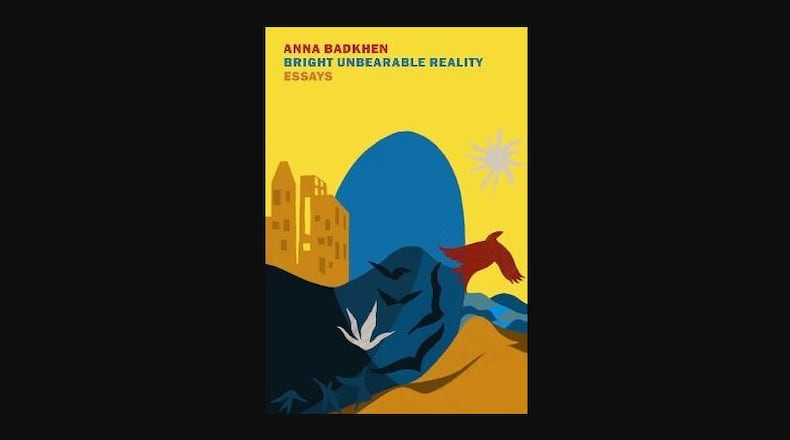As those millions have been on the move, Badkhen has been on the ground reporting on conditions and living in close proximity with some of the people who are dealing with the impacts of rising temperatures.
Badkhen has spent time with fishermen who must travel further and further away from the coast of Africa if they hope to catch any fish. She traveled with nomadic herders in Africa as they went along their traditional routes seeking sustenance for their herds. She took a trek across the Sahara Desert with a group of migrants who were heading north to seek better lives. She has written several books about her experiences.
Badkhen has described these books as “magical nonfiction.” Her most recent book, “Bright Unbearable Reality,” is a collection of some of her essays. She writes about the massive migrations that are taking place as residents of the global south are being uprooted by climate change and conflict.
The author possesses a keen sense of history. She writes: “The last glaciation drenched the Sahara. You can still see, from a satellite that orbits the earth, the dry courses of the mighty rivers that veined it during the early Neolithic. You must step that far away to access a desert’s memory. They say in fifteen thousand years the Sahara will be green again.”
That sense of history makes her wonder at the animosity some Americans express toward migrants trying to come here for better opportunities. Most of us are descended from migrants who came here for similar reasons. Why are so many determined to keep new migrants locked out?
In her essay “Forgiving the Unforgivable” the author describes going to a fort in Oklahoma where the native American warrior Geronimo is buried. She gathered earth at his grave to carry into the mountains of Mexico where descendants of Geronimo held a healing ceremony, thus forgiving the terrible things done to Geronimo and to native peoples driven from their homes.
Badkhen possesses a gift for expressing deep feelings in just a few words, words like these: “There are no bad symbols just as there are no bad words, there are merely the billion hurts we inflict upon one another, the billion comforts we bestow.”
The author believes the global pandemic offered us a unique opportunity to draw closer together, a chance we seem to be squandering as we are riven with dissension and vitriol in our responses to COVID. Has the virus made us stronger? Or is it making us become more isolated while drawing further apart?
These thoughtful essays drill down to truths. Things can seem awful on the surface of the planet — she still plucks out a few kernels of hope, lest we lose ourselves to despair.
Vick Mickunas of Yellow Springs interviews authors every Saturday at 7 a.m. and on Sundays at 10:30 a.m. on WYSO-FM (91.3). For more information, visit www.wyso.org/programs/book-nook. Contact him at vick@vickmickunas.com.
About the Author
